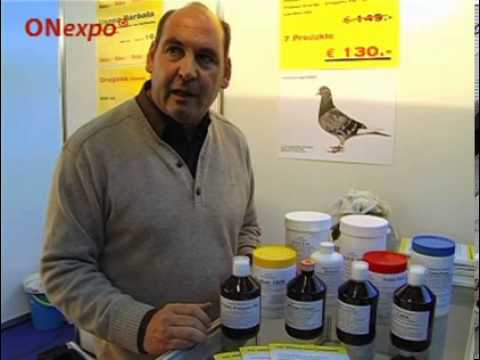Bacteria - our friends by Dr. Hans-Peter Brockamp…
Quite wrongly, bacteria have a bad reputation.
Namely, the "bad" bacteria, pathogens, make up a very small part of the bacterial world.
Most are very benign and very important for us. Even a life on our planet would be impossible without these bacteria.
The intestinal contents E.g. consists of about 1 kg of weight to a very large extent bacteria, when everyone big.
In a healthy person the benign Bactria from make up more than 95%. The pathogen then win out, if something wrong is with the intestinal flora.
Nowadays mainly a bacterium makes human problems: the Clostridium dificile.
That is normally like other pathogenic germs present in very low concentrations (less than 1%) in the intestine.
If for example antibiotics are administered, multiplied just this Clostridium and begins to produce toxins. Diarrhea and malaise are the result.
Our positive intestinal flora thrives, on what our digestive system leaving them them.
As all of our cells, our intestinal cells also must be fed.
And organic acids such as butyric acid produce the intestinal flora, so all our bacteria in the intestine. And this in turn is a very important nutrient for our intestinal cells.
It follows that the intestinal cells draw their food from our food, but fed by the bacteria. This is a very important finding.
We owe our intestinal flora also important vitamins, such as vitamin K, for example.
Confused by lay people are often also bacteria and viruses.
Bacteria are like us living beings. Have a cell as a basic building block of all living things and they have an own Habitat - including the bacteria.
Viruses, however, do not have these. They consist only of propagation enabled DNA, which is protected by a capsule.
Viruses can multiply so only by penetrate into another organism and use of their habitat.
If you would like to put it so, lie or fly them just around and if they then penetrate into cells, they wreak havoc.
Because bacteria are living things, bacteria can be attacked by viruses, called bacteriophages. There's such as the T4, which invades our intestinal bacteria.
These viruses penetrate, multiply and destroy. You can isolate them from each wastewater treatment plant by the way...
What to do with us at all pathogenic bacteria?
Usually they or their spores invade wounds, sometimes ranging to small abrasions. If they find good conditions, to establish a population, then they start to reproduce. This is done by the cleavage.
At reproduction, they produce toxins. These are extremely toxic substances, which are among the most toxic on the planet.
These toxins then attach to proteins and are transported via the bloodstream through our body.
There are thousands of dog Earth. Bacterial species with very different sometimes incredible survival and Reperaturmechanismen.
There are species of bacteria more radiation, the 1000 times as we tolerate or grow at over 100 ° C...
If you know a little more of the basics about bacteria, it is much easier to protect from infections.
It shows how important hygiene is that you watch on food and for example do not spoil. For some developing countries, it means that you drink only boiled water.
In a glass of water, there may be 6 billion bacteria, as many as people on earth - except that you can't see them!
Bacteria are not only so small that you can't see them, they multiply too rapidly.
Erdgeschichtlich is to find out that it already more than 2 billion years before the higher organisms were bacteria, they were so to speak among themselves.
It's actually amazing that the microbial flora on the planet has approved higher living beings at all were able to develop.
The bacterial mass on our planet makes approximately from 500 times the mass of all animal beings. Bacteria are everywhere, so to speak, and wait for substrates. Once we give them some waste or biomass they begin to multiply itself.
we need before not to be afraid.
Dr. Hans - Peter Brockamp
IPC sports products
Colonel breed 102
56154 Boppard
Phone: 49 2651 701 360
Fax: 49 2651 701 361
E-Mail: Info@probac.de

 buy here... (click)
buy here... (click)




